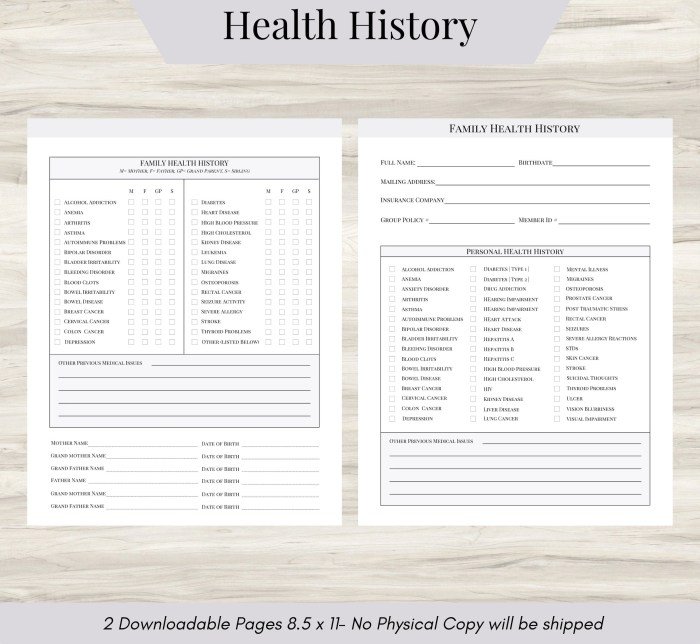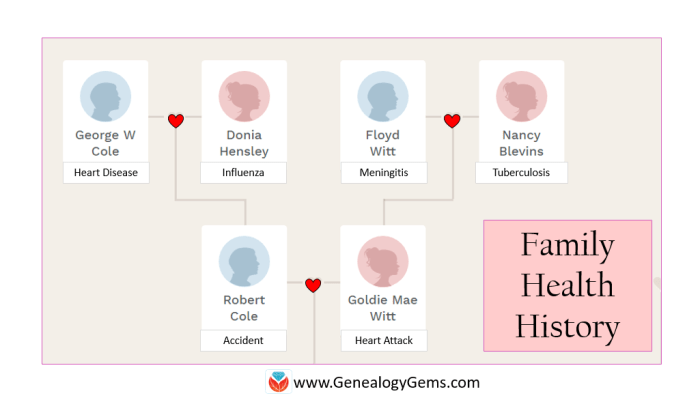DTC family health is reshaping the way we approach healthcare, putting individuals in control of their well-being. This burgeoning industry offers a wide range of services, from genetic testing to fertility support and mental health resources, all conveniently accessible online.
With the rise of DTC family health, we’re witnessing a shift towards personalized healthcare solutions, empowering individuals to make informed decisions about their health.
The convenience and affordability of DTC family health services have attracted a growing number of users, particularly those seeking alternative healthcare options. However, the rapid expansion of this industry has also raised concerns about data privacy, potential risks of self-diagnosis, and the ethical implications of genetic testing.
This article explores the benefits and drawbacks of DTC family health, delves into its key categories, and examines the future of this dynamic sector.
The Rise of DTC Family Health

The direct-to-consumer (DTC) healthcare market is experiencing a surge in popularity, with family health services taking center stage. This trend is driven by a confluence of factors, including increasing consumer demand for convenience, affordability, and personalized healthcare experiences.
Factors Contributing to the Growth of DTC Family Health
The rising popularity of DTC family health services is fueled by a number of factors:
- Convenience:DTC platforms offer a convenient alternative to traditional healthcare, allowing users to access services from the comfort of their homes, eliminating the need for appointments and travel.
- Affordability:DTC services often provide more affordable options compared to traditional healthcare, particularly for routine checkups and basic health needs.
- Accessibility:DTC services are accessible to a wider range of individuals, including those in rural areas or with limited access to traditional healthcare providers.
- Technology:Advancements in technology, such as telehealth platforms and mobile apps, have enabled the development of convenient and accessible DTC healthcare services.
- Consumer Empowerment:Consumers are increasingly taking a more active role in managing their health, and DTC services empower them with greater control over their healthcare decisions.
Examples of Successful DTC Family Health Companies
Several companies have emerged as leaders in the DTC family health space, offering a range of services:
- Teladoc Health:This company provides virtual healthcare services, including telehealth consultations, prescription refills, and mental health support.
- Ro:This company specializes in online healthcare services, including medication for conditions like erectile dysfunction and hair loss, as well as mental health services.
- Modern Fertility:This company offers at-home hormone testing kits for women, providing insights into fertility and overall health.
- One Medical:This company offers a combination of virtual and in-person healthcare services, including primary care, mental health, and specialty care.
Benefits and Drawbacks of DTC Family Health Services
DTC family health services offer a range of potential benefits, but it is important to consider potential drawbacks as well:
Benefits
- Convenience and Accessibility:DTC services offer convenience and accessibility, allowing users to access care from the comfort of their homes.
- Affordability:DTC services can be more affordable than traditional healthcare, particularly for routine checkups and basic health needs.
- Personalized Care:Some DTC services offer personalized care plans based on individual needs and preferences.
- Privacy and Control:DTC services can provide users with greater control over their health information and privacy.
Drawbacks
- Limited Scope of Services:DTC services may not be suitable for all health conditions, and they may not offer the same level of care as traditional healthcare providers.
- Lack of Physical Examination:DTC services may not involve physical examinations, which can be crucial for diagnosing certain conditions.
- Data Privacy Concerns:There are concerns about data privacy and security with DTC services, as they collect and store sensitive health information.
- Regulatory Challenges:The regulatory landscape for DTC healthcare is still evolving, and there are concerns about the lack of oversight and potential for fraud.
DTC Family Health Services

The rise of direct-to-consumer (DTC) family health services has revolutionized how individuals access healthcare information and services. These services bypass traditional healthcare providers and allow consumers to directly purchase and utilize a wide range of health-related products and services.
Genetic Testing
Genetic testing has become increasingly accessible and affordable through DTC platforms. These services offer insights into an individual’s genetic makeup, providing information about ancestry, predisposition to certain diseases, and carrier status for genetic disorders.
- Ancestry Testing:These tests analyze DNA to determine an individual’s ancestral origins and trace their lineage back through generations. Services like AncestryDNA and 23andMe offer detailed reports on ethnic background, migration patterns, and potential relatives.
- Health and Wellness Testing:These tests examine DNA for genetic variants associated with various health conditions, including cardiovascular disease, diabetes, and certain types of cancer. They can provide insights into potential risks and help individuals make informed lifestyle choices. Examples include Myriad Genetics’ BRACAnalysis for breast and ovarian cancer risk assessment and Invitae’s comprehensive genetic testing panels.
- Carrier Screening:These tests identify individuals who carry a gene mutation for a recessive genetic disorder, even if they do not exhibit symptoms themselves. Couples can use this information to make informed decisions about family planning. Companies like Counsyl and Invitae offer carrier screening panels for a wide range of genetic conditions.
Direct-to-consumer (DTC) family health services are gaining popularity, offering convenient and affordable access to healthcare. Many families are choosing this route for preventative care and general well-being, often seeking out fitness options as a key component of their health strategy.
For those in the Upper Manhattan area, blink fitness 116th street provides a budget-friendly gym with a wide range of equipment and classes. Ultimately, finding the right balance between preventative care and a healthy lifestyle is crucial for families seeking to prioritize their well-being.
Fertility Services
DTC fertility services offer a range of options for individuals and couples struggling with infertility. These services provide information, resources, and support throughout the fertility journey.
- At-Home Fertility Testing:These tests allow individuals to assess their fertility levels at home using urine or saliva samples. They provide insights into hormone levels, ovulation patterns, and other fertility indicators. Examples include Proov, Modern Fertility, and SneakPeek.
- Fertility Tracking Apps:These apps utilize data from fertility tests, menstrual cycles, and other factors to predict ovulation and identify fertile windows. They can be helpful for couples trying to conceive naturally or using assisted reproductive technologies. Popular apps include Clue, Flo, and Ovia.
- Sperm Analysis Kits:These kits allow men to analyze their sperm at home for various parameters, including count, motility, and morphology. They can provide insights into sperm health and identify potential fertility issues. Companies like LetsGetChecked and Home Sperm Test offer at-home sperm analysis kits.
Mental Health Services
DTC mental health services offer a range of tools and resources to support individuals struggling with mental health conditions. These services provide access to therapy, counseling, and self-management tools.
- Online Therapy Platforms:These platforms connect individuals with licensed therapists for virtual therapy sessions. They offer a convenient and accessible alternative to traditional therapy, allowing individuals to receive support from the comfort of their own homes. Examples include Talkspace, BetterHelp, and Cerebral.
- Mental Health Apps:These apps provide self-guided tools and resources for managing mental health conditions. They offer guided meditations, relaxation techniques, mood tracking, and educational content. Popular apps include Headspace, Calm, and Day One.
- Mental Health Assessments:These online assessments can help individuals screen for mental health conditions, such as depression, anxiety, and PTSD. They provide insights into potential issues and can help individuals connect with appropriate resources. Examples include the PHQ-9 for depression and the GAD-7 for anxiety.
Table Comparing DTC Family Health Services
| Service Category | Cost | Accuracy | Accessibility |
|---|---|---|---|
| Genetic Testing | Varies widely depending on the type of test and company, ranging from $99 to over $1,000. | Generally accurate, but results should be interpreted by a healthcare professional. | Highly accessible, with many companies offering online ordering and home sample collection. |
| Fertility Services | Ranges from $20 to over $100 per test or subscription. | Accuracy varies depending on the specific test and company. | Highly accessible, with many companies offering online ordering and home sample collection. |
| Mental Health Services | Varies depending on the platform or app, with some offering free trials or subscription-based models. | Accuracy depends on the qualifications of the therapist and the effectiveness of the app’s tools. | Highly accessible, with many platforms and apps available online and through mobile devices. |
Benefits and Concerns

The rise of DTC family health services presents both exciting opportunities and potential challenges. These services offer a range of advantages, including increased accessibility and convenience, while also raising ethical considerations and potential risks. Understanding the potential benefits and concerns is crucial for individuals considering using these services.
Benefits of DTC Family Health Services
DTC family health services offer several potential benefits, including:
- Convenience:These services allow individuals to access health information and tests from the comfort of their homes, eliminating the need for appointments and travel.
- Affordability:DTC family health services can be more affordable than traditional healthcare options, especially for individuals without health insurance or with high deductibles.
- Increased Awareness:DTC family health services can raise awareness about various health conditions and encourage individuals to take proactive steps towards managing their health.
- Personalized Insights:These services can provide individuals with personalized health information and recommendations based on their genetic makeup, lifestyle, and other factors.
Ethical Considerations and Potential Risks
While DTC family health services offer potential benefits, they also raise several ethical considerations and potential risks:
- Data Privacy:DTC companies collect vast amounts of personal health data, raising concerns about data security and potential misuse.
- Genetic Discrimination:Genetic information can be used for discriminatory purposes, such as employment or insurance decisions.
- Self-Diagnosis:Individuals may misinterpret or overreact to test results, leading to unnecessary anxiety or inappropriate treatment decisions.
- Lack of Medical Oversight:DTC family health services often lack the direct involvement of healthcare professionals, potentially leading to misdiagnosis or missed treatment opportunities.
Comparison with Traditional Healthcare Options
DTC family health services differ from traditional healthcare options in several ways:
| Feature | DTC Family Health Services | Traditional Healthcare Options |
|---|---|---|
| Accessibility | More accessible due to convenience and affordability | Limited by insurance coverage, appointment availability, and geographic location |
| Cost | Potentially more affordable | Can be expensive, especially for uninsured individuals |
| Medical Oversight | Limited medical oversight | Direct involvement of healthcare professionals |
| Data Privacy | Potential for data privacy breaches | Protected by HIPAA regulations |
Future of DTC Family Health

The DTC family health industry is rapidly evolving, driven by advancements in technology, consumer demand, and changing healthcare landscapes. The future holds exciting possibilities for how consumers access and manage their health and well-being.
Trends and Innovations
The DTC family health industry is poised for significant growth and innovation in the coming years. Here are some key trends to watch:
- Personalized Medicine:DTC companies are leveraging genetic testing, wearable technology, and other data sources to provide personalized health recommendations and insights. This will allow individuals to take a more proactive approach to their health and make informed decisions based on their unique genetic makeup and lifestyle.
Direct-to-consumer (DTC) family health companies are revolutionizing how we access healthcare, offering convenient and affordable options for everything from vitamins to genetic testing. But maintaining a healthy lifestyle extends beyond just medical care, encompassing aspects like beauty and wellness.
The beauty master concept emphasizes the importance of feeling confident and empowered in your own skin, a crucial aspect of overall well-being that complements the DTC family health movement. By prioritizing both physical and mental health, we can create a holistic approach to living a fulfilling life.
- Expansion of Services:DTC companies are expanding their offerings beyond basic health screenings to include services like virtual consultations, mental health support, and chronic disease management. This comprehensive approach aims to provide individuals with a one-stop shop for their healthcare needs.
- Integration with Traditional Healthcare:DTC companies are increasingly collaborating with traditional healthcare providers to seamlessly integrate their services into existing healthcare systems. This collaboration will enhance patient care and provide a more holistic approach to health management.
- Artificial Intelligence (AI) and Machine Learning:AI and machine learning are playing an increasingly vital role in the DTC family health industry. These technologies are used to analyze large datasets, identify patterns, and provide personalized insights. AI-powered chatbots and virtual assistants are also being used to provide 24/7 support and answer patient questions.
Role of Technology and Artificial Intelligence, Dtc family health
Technology and artificial intelligence (AI) are transforming the landscape of DTC family health, enabling more personalized, accessible, and efficient healthcare services.
- Personalized Health Recommendations:AI algorithms analyze data from genetic testing, wearable devices, and other sources to provide tailored health recommendations, including dietary guidance, exercise plans, and preventive measures.
- Virtual Consultations and Remote Monitoring:AI-powered virtual assistants and chatbots facilitate virtual consultations, enabling patients to connect with healthcare professionals remotely. AI also plays a crucial role in remote patient monitoring, analyzing data from wearable devices to identify potential health issues and alert healthcare providers.
- Early Disease Detection:AI algorithms can analyze large datasets of medical records and patient data to identify early signs of disease and predict future health risks. This proactive approach allows for timely interventions and potentially prevents the progression of chronic conditions.
- Drug Discovery and Development:AI is accelerating drug discovery and development by analyzing vast amounts of data to identify potential drug targets and optimize drug formulations. This will lead to the development of more effective and personalized treatments.
Hypothetical Scenario: Future of DTC Family Health in 10 Years
Imagine a world where individuals have a comprehensive digital health profile that encompasses their genetic information, lifestyle habits, and medical history. This profile is constantly updated with data from wearable devices, home health monitors, and even environmental sensors.
Direct-to-consumer (DTC) family health services are becoming increasingly popular, offering convenient and accessible options for managing family well-being. These services often partner with established healthcare providers, such as medford atrius health , to offer a wider range of services and ensure quality care.
By integrating with traditional healthcare systems, DTC family health services can create a more comprehensive and patient-centered approach to healthcare.
- AI-powered virtual assistantsprovide personalized health recommendations based on this profile, guiding individuals on nutrition, exercise, sleep, and stress management. They can also identify potential health risks and recommend preventive measures.
- DTC companies offer a range of services, including virtual consultations with healthcare professionals, AI-powered mental health support, and personalized medication management.
- Traditional healthcare systems seamlessly integratewith DTC platforms, allowing for a smooth exchange of patient data and a more holistic approach to healthcare.
- DTC companies partner with insurance providersto offer personalized health plans and incentives for healthy behaviors. This incentivizes individuals to take an active role in managing their health.
Concluding Remarks

As DTC family health continues to evolve, it’s crucial to strike a balance between innovation and responsible practice. The industry must address concerns regarding data privacy, ensure accurate and reliable testing, and collaborate with traditional healthcare providers to provide comprehensive care.
The future of DTC family health holds immense potential, but its success hinges on addressing ethical considerations and prioritizing patient safety and well-being.
User Queries
What are the potential risks associated with DTC family health services?
While DTC family health offers many benefits, it’s important to be aware of potential risks, such as data privacy breaches, inaccurate test results, and the potential for self-diagnosis leading to inappropriate medical decisions.
How can I ensure the accuracy of DTC family health tests?
Choose reputable companies with established track records and seek guidance from healthcare professionals when interpreting test results.
Are DTC family health services covered by insurance?
Insurance coverage for DTC family health services varies depending on your plan. It’s best to contact your insurance provider for specific details.